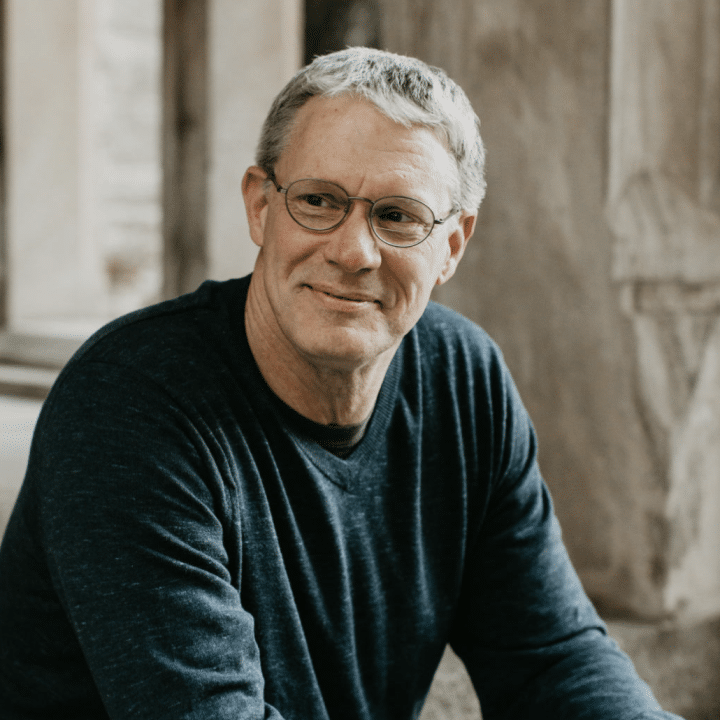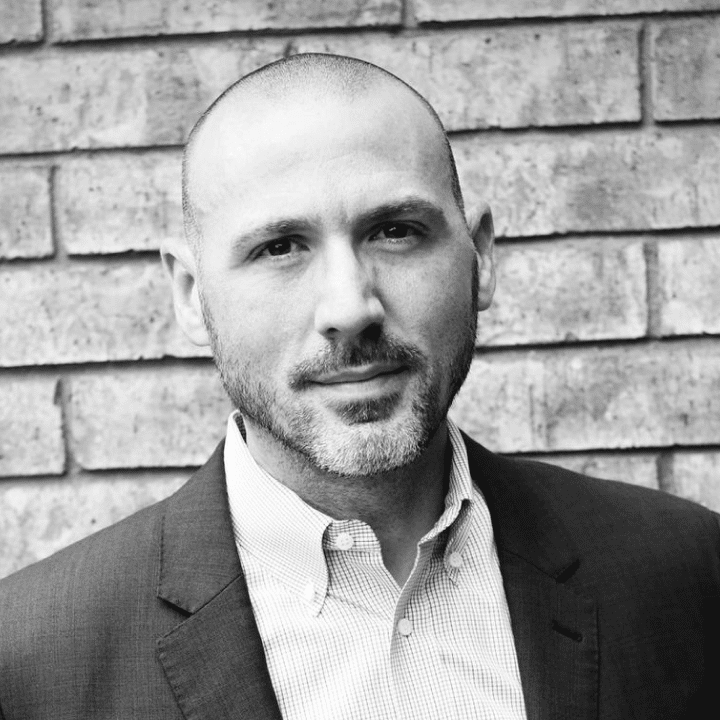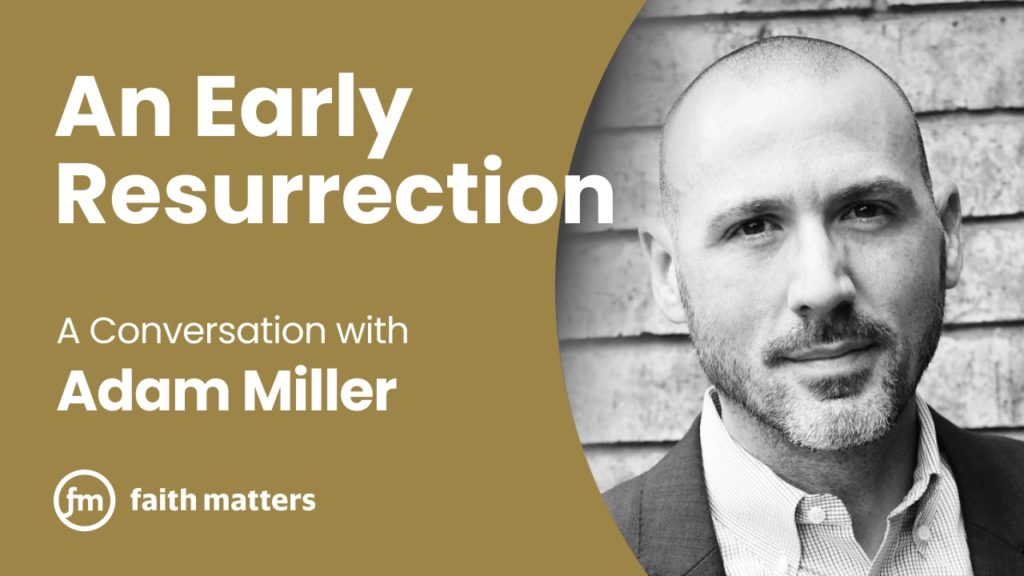One does not come to a belief in Christ’s atonement because of any logical argumentation about agency, justice, or scriptural assertions of sin and salvation. We come, if we arrive at all, because of a felt need about our own deep insufficiency. The poet George Herbert prayed that “if goodness lead me not, yet weariness may toss me to thy breast.”
Even from the valleys of uncertainty, I am profoundly and deeply moved by the specter of a young, itinerant Galilean rabbi who two thousand years ago willingly offered himself up to barbaric execution, enduring unspeakable torment, because he believed that by so doing he was offering me, personally, respite from the pains and humiliations and failures and wounds of my life, whether inflicted by others or by my own deliberate, foolish choices. As the Book of Mormon testified would happen, I find myself “drawn” to this unparalleled act of grace and kindness to me. (2 Nephi: 26:24)
When I contemplate that this was no deluded Jewish peasant making this generous sacrifice, but a being of premortal glory and divinity, that sacrifice assumes a transformative power. If, as Augustine held, absolute love is the only irresistible force in the universe, the atonement of Christ is its most perfect manifestation.
The Atonement is the fundamental teaching underlying the Christian good news: that the Son of God took upon himself mortal flesh, and by his immersion in the crucible of human experience, culminating in his suffering in Gethsemane and his crucifixion, atoned for the sins of the human family and thereby redeemed us all.
Faith, as the first principle of the gospel, is more accurately faith in Jesus Christ; in his absolute love, and his redemptive power. And yet, the atonement may be the gospel principle that most resists our full comprehension.
What is offered here is an exploration of the radically distinctive teachings of the restored gospel. These teachings give a gentler, more rational, and more appealing face to atonement than traditional Christian views–and one that offers a compelling invitation to more tender relationship with Christ.
Our Inviolable, Eternal Agency
As premortal intelligences, we were “independent” in our sphere, possessing agency. In heavenly councils, we accepted the generous invitation to embark on a journey— a process that could ultimately make us one with our heavenly parents. We could grow to be like them. They desired to make of us peers, not subjects. In that sense, “at-one-ment” is the goal, the telos or end of all our striving, and has been from the beginning. As children of divine parents, we agreed to use our agency in ways consistent with their guidance and direction.
As errant children, we sometimes act in violation of those principles we know—or at a minimum vaguely sense—are consistent with our true identity and destiny. God intends us to be holy beings bound together in love. But our personal sins cause pain and suffering to ourselves and others, and results in alienation. Our freedom to choose comes into conflict with God’s desire to bless, exalt, and bind together. To preserve our agency while accomplishing God’s designs for us, atonement is necessary.
A New Concept of “Justice”
The notion of some abstract entity or principle labeled “Justice” as demanding that someone pay the price of sin evokes a specter of blind retribution, hardly compatible with a compassionate God. The Book of Mormon may help in this regard, by recasting “Justice” as a principle of agency: what we call Justice may be better understood as God’s guarantee that human choices be honored (Helaman 14:31; Alma 41:3-7); in other words, that they actually mean something. That would appear to be what separated the Father’s plan from Lucifer’s.
What kind of freedom would it be, if there was no real consequence attached to any deliberate choice? “Justice” might more accurately be cast as the painful consequences of alienation from God (and from each other) that follows naturally from choices we were warned against but made anyhow. What we experience as punishment is, from another perspective, the simple and natural consequence of choices that alienate us from each other and from the light of Christ–that which gives life to all things” (see D&C 88). God does not inflict pain or punishment. He forewarns us of the sorrows that follow in the wake of agency wrongly employed.
One crucial, essential caveat: we never make choices with a perfect fulness of understanding, or with an agency that is perfectly untainted by circumstance, ignorance, genetic impairments, bodily limitations, etc. Yet the consequences of such compromised exercise of agency can ripple out through generations in ways we could never imagine nor ever be able to repair.
In other words, because we generally do not choose with a fullness of understanding, with a will that is uncontaminated, with an intention that is fully deliberate, these acts cannot be considered fully intentional. How could we then be held fully accountable for the pain we cause or the alienation we suffer? For we did not, in the fullest sense of the word, choose these repercussions.
The Educative Value of Sin
The Book of Moses clarifies not just the inevitability of sin, but its educative value. We must “taste the bitter” in order “to prize the good” (Moses 6:55). Tasting the bitter, making poor choices as we learn to walk spiritually, entails all kinds of collateral damage. Christ offers, from the foundations of the world, to mitigate that spiritual harm we would otherwise experience and that we transmit, by somehow offering himself to absorb the painful consequences.
Because, as we saw above, our choices–with their consequences–were not always fully intentional, Christ can intercede, heal us and himself absorb some of those consequences without violating either justice or our agency. Christ is not a one-time sacrifice for a cataclysmic sin of Adam inherited by all. His involvement in our forgiveness, healing, and redirection is ongoing throughout our lives. He is our personal Redeemer, who knows us by name, and whose succor is in response to our personal invitation for his involvement in our lives, allowing us the educative benefit of bitter taste without the full weight of their potential harm descending upon us.
Atonement as Healing
In a related way, the language of Restoration scripture relocates the focus of atonement from sin to woundedness. In the earliest version of the Book of Mormon, “woundedness” is the term employed in Nephi’s vision to characterize the human condition in a secular age: We inhabit a “state of awful woundedness” (1 Nephi 13:32, 1830 edition). And Helaman, among others, sees atonement as reparative of the whole gamut of collateral damage that our risk-strewn sojourn into mortal probation entails:
“And he shall go forth, suffering pains and afflictions and temptations of every kind; and this that the word might be fulfilled which saith he will take upon him the pains and the sicknesses of his people. … And he will take upon him their infirmities, that his bowels may be filled with mercy, according to the flesh, that he may know according to the flesh how to succor his people according to their infirmities (Alma 7).
The Greek term sodzo (Σῴζω), which Protestant translators loved to render “save,” is with equal (and often greater) validity rendered as “heal.” As Latter-day Saints, we believe we do not so much need rescuing or saving from depravity; we are in greater need of healing from our woundedness and alienation. That repairing, healing, binding up and binding together, is the great work of Jesus Christ’s atonement. If some kind of vicarious suffering, or divine suffering, is an essential dimension to the atonement, its other essential component is the healing it precipitates.
Christ’s experience of all form of mortal ills, the scriptures emphasize, empowers and enables him to succor us, nurture us, and heal us. Mortality was educative for him too. Healing is clearly the principal work of his mortal ministry, and if we employ the linguistically valid “heal” everywhere sodzo appears, we see the atonement through a new lens. In the first public sermon of the apostolic age, Peter teaches the very version of atonement we are emphasizing:
“By the name of Jesus Christ of Nazareth, whom ye crucified, whom God raised from the dead, even by him doth this man stand here before you whole…. Neither is there healing [soteria] in any other: for there is none other name under heaven given among men, whereby we must be healed [sodzo].” (Acts 4:10-12)
Atonement as our Collective Mission with Christ
If we apply the above insight regarding sodzo to a scripture well-known to Latter-day Saints, we get this beautiful challenge and promise: “Healers shall come up on Mount Zion.” (Obadiah 1:21) The baptismal challenge of Alma invites us all to be co-participants, co-healers with Christ, as we carry one another’s burdens, mourn with those that mourn, and comfort those in need of comfort. Christ works in all kinds of ways—with us if we are willing—to heal pain and alienation in the world. And He heals through us—through clergy and therapists, through songwriters and poets, through convenience store clerks and school teachers, through wise elders and recovering addicts, through yoga teachers and Relief Society Presidents. All bring their healing gifts.
Christ and the angelic hosts are constantly at work in the world trying to heal the pain and alienation we are constantly creating. And when we become open to that healing, we receive His direct and powerful spiritual help, which is what ultimately transforms and heals us.
A New Language of Grace
Why can we not extricate ourselves from the consequences of our own choices? Perhaps because every choice that alienates us from God’s spirit and from our true selves makes us less capable of choosing correctly the next time. Choice by choice, we allow our ego, our thoughts and simple biology to eclipse divine influence and disconnect us from our eternal nature. As these habits of thought and behavior become entrenched, simply reversing course becomes impossible. We have lost the course.
We need help if we hope to rediscover our divine identity and restore connection to the light of Christ. We call this divine help grace. Only Christ’s grace can open the door to healing and deep transformation. Only Christ’s grace, working in and through us, can heal the pain and alienation that result from sin. Only grace can create at-one-ment.
Questions
What form does your yearning, your sense of insufficiency, or your woundedness take? Do you think you can become healed and whole through a simple course correction, or do you need to feel the power of Christ’s grace in your life?
Are there any greater aspirations in your life than to find wholeness, enfoldedness, in the love of another and rich community? Might at-one-ment become more meaningful as a goal, even your life’s project in partnership with Christ, than as a theological concept?
“The highest of all is not to understand the highest but to act upon it,” wrote Kierkegaard. And the Healer promised, “If any man will do his will, he shall know of the doctrine” (John 7:17).
Endnotes
- In the typical language of Christian thought on the subject, the misuse of our freedom is sin, sin requires punishment. At the same time, only the pure, the sanctified, can move on (or back to) union with God. Therefore, Christ assumes the punishment for our sins (satisfying the demands of Justice) and thus absolved, we are endowed with, or acquire, sanctity and qualify for salvation. Our agency is operative, justice is satisfied, and God’s designs upheld. In modern Christian theology, and among some LDS writers, this version is considered a barbaric, even sadistic “penal substitution” model, and many modern believers want to move in the direction of an atonement whose principal and operative effect is a love so powerful it moves us to repentance and transformation—without Christ actually being punished in our stead. The major challenge here is the pervasiveness of the language of substitution in all the standard works.
- In popular Mormon folk culture, Satan’s plan involved coercion. Early LDS thinkers knew that agency is thwarted in more subtle ways than by force, namely, by abrogating the consequences of our choices, rendering them in the end literally inconsequential.
- This is essentially B. H. Roberts’ conception of atonement. Christ’s willing exposure to the full weight of our choices maintains the integrity of agency in the universe, by preserving the connection between choice and consequence.
- It is precisely in this space, this deficiency, this coming up short of an uncompromised exercise of agency, that repentance can occur without voiding our freedom.



